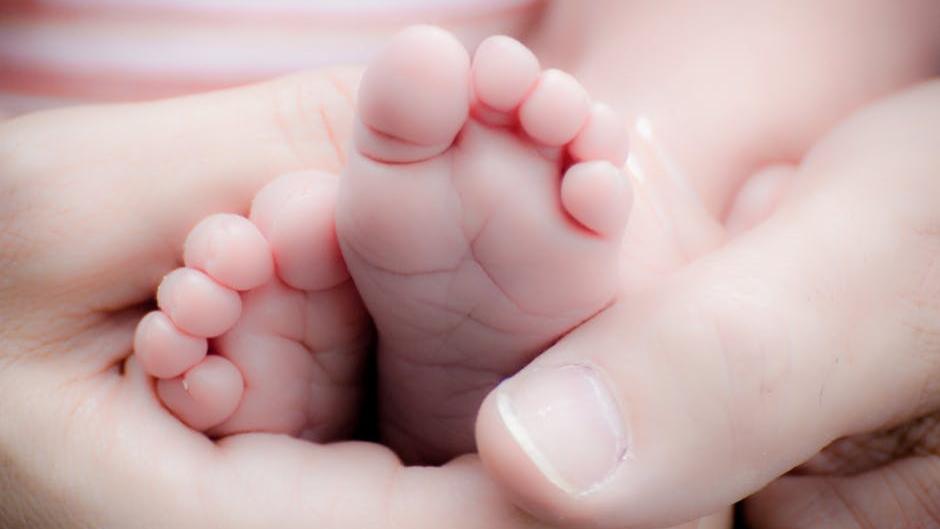Safer Sleep Week
Wed 14th March 2018
The Lullaby Trust is again running its Safer Sleep Week from 12-18 March to help make parents aware of the safest ways for their babies to sleep.
The theme for this year is navigating the way through the many sleep products that are marketed at parents, as well as understanding the current evidence on creating a sleep environment that is as safe as possible for a baby.
East Riding of Yorkshire Council’s Public Health team works closely with health organisations and other local partners to help parents understand how to keep their babies safer while they sleep.
In the majority of cases babies are completely fine and go on to live healthy lives; however, there are occasions when heartbreaking cases occur.
Sudden Infant Death Syndrome (SIDS) is the sudden and unexplained death of a baby where no cause is found. However, there are steps parents can take to help reduce the chance of this tragedy occurring.
One East Yorkshire mum wants to share her tragic story to help raise awareness of SIDS and to make parents aware of the risks.
Jennifer Wakefield, mother to Ralph, said: “Ralph was born on 27 March, a healthy 8lb 14oz at York Hospital and celebrated his six month birthday on 27 September at home with myself and his father.
“On the morning of 30 September, I received a phone call from the childminder, where Ralph had been going to for the past fortnight after I started a new job, saying they thought Ralph had died.
“A colleague drove me to the hospital where myself and his father were informed that Ralph had died.
“We attended an inquest in Hull on 11 March 2016, where a cause of death could not be found and was categorised as un-ascertained, but was most likely to have been SIDS.”
East Riding of Yorkshire Council is using Safer Sleep Week to raise awareness and promote the work done between partners to prevent SIDS occurring in babies.
The East Riding and Hull safe sleeping steering group advises parents that the safest place for their baby to sleep is a crib or cot in a room with them for the first six months.
Things you can do to help reduce the chance of SIDS:
- breastfeed your baby
- never sleep on a sofa or in an armchair with your baby
- do not sleep in the same bed as your baby if you smoke, drink, take drugs or are extremely tired, or if the baby was premature or of low birth weight
- avoid letting the baby get too hot (room temperature should be 16-20â°C)
- do not cover the baby’s face or head while sleeping, use light bedding
- keep your baby smoke free during pregnancy and after birth
- avoid having additional items in the cot, such as soft toys, pillows, etc.
Isabel Carrick, public health lead at East Riding of Yorkshire Council, said: “The risk of SIDS can worry new parents but there are simple things to do that will make their baby's sleep environment safer.
“Follow the key points and talk to your midwife, health visitor or children’s centre worker if you need more information.
“They can also give support with breastfeeding and with stopping smoking, both of which reduce the risks of SIDS.
“Consider where your baby will sleep both for night time and daytime sleeps, and if things change, for example if staying at grandparents, or if you are away from home.”
Key messages:
- The safest sleep position for babies is on their back (supine). The Back to Sleep campaign in the 1990s is one of the main reasons why sudden infant death dropped by more than half between 1989 and 1992. Once babies can roll from front to back again by themselves they can be left to find their own position to sleep
- Babies should be placed on a flat mattress in the ‘feet to foot’ position in a cot kept clear of bumper, toys and loose bedding
- Breast feeding and keeping your baby smoke free have been shown to reduce the risk of SIDS. Ask your midwife or health visitor for help with breastfeeding and stopping smoking.
Parents and carers should be advised never to sleep with a baby on a sofa or in an armchair, and they should be reminded that accidents can happen: parents might roll over in their sleep and suffocate their baby, or the baby could get caught between the wall and the bed, or could roll out of the bed and be injured.
It is important to emphasise to parents the need to re-assess infant sleep practices whenever anything changes, e.g. someone new (such as grandparent, babysitter) putting the baby to bed; sleeping away from home etc.
For more information about Safer Sleep Week visit https://www.lullabytrust.org.uk/about-us/safer-sleep-week-2018/

